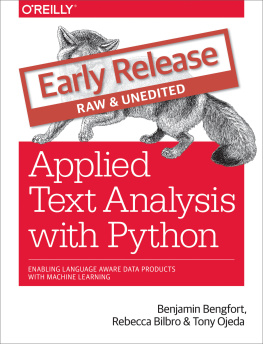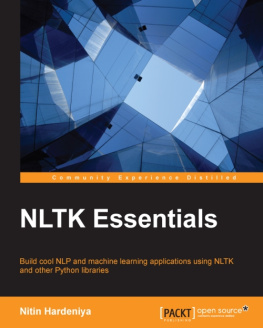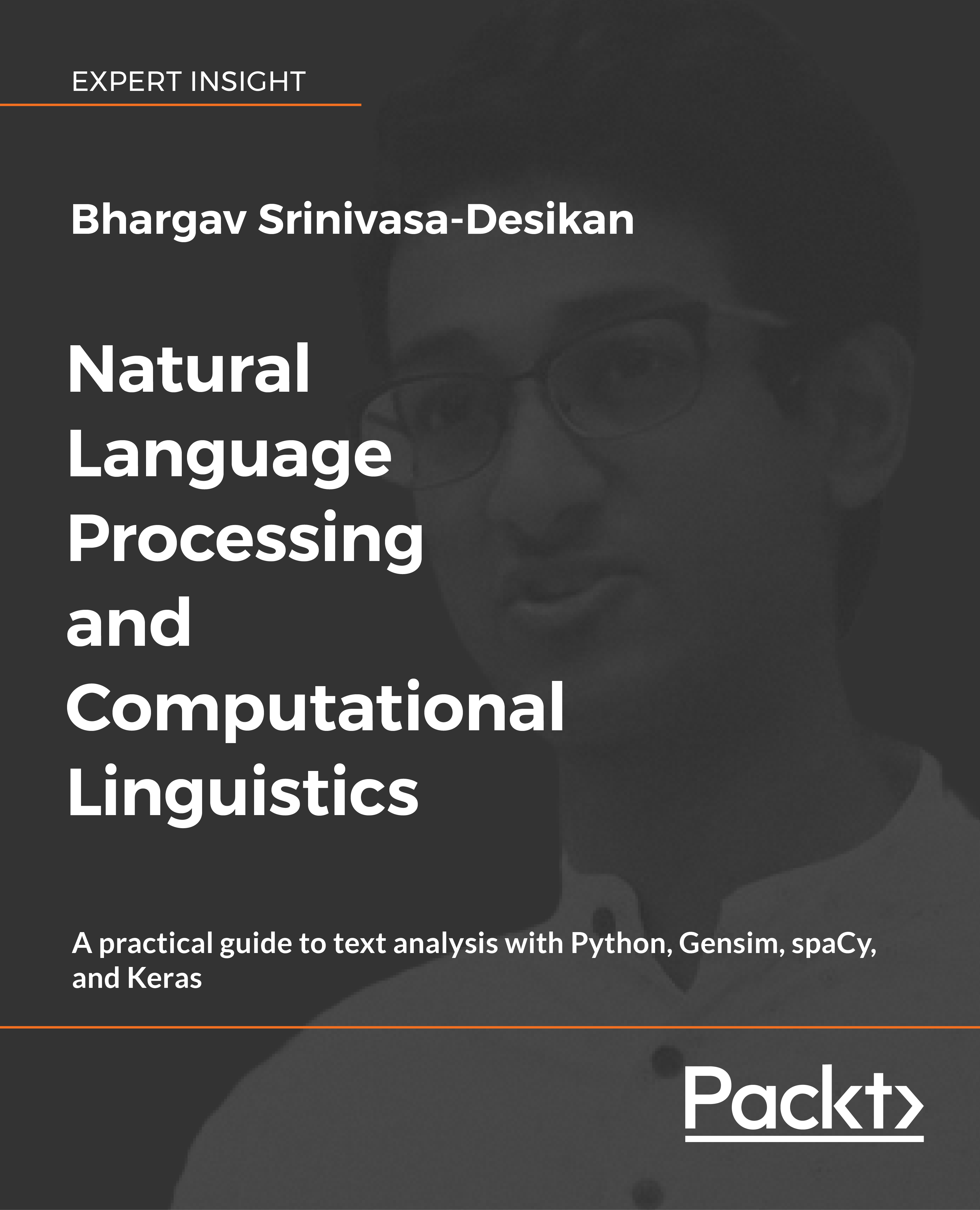Natural Language Processing and Computational Linguistics
A practical guide to text analysis with Python, Gensim, spaCy, and Keras
Bhargav Srinivasa-Desikan
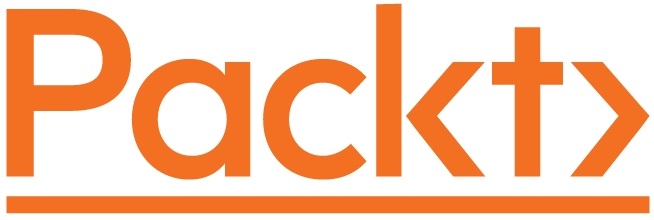
BIRMINGHAM - MUMBAI
Natural Language Processing and Computational Linguistics
Copyright 2018 Packt Publishing
All rights reserved. No part of this book may be reproduced, stored in a retrieval system, or transmitted in any form or by any means, without the prior written permission of the publisher, except in the case of brief quotations embedded in critical articles or reviews.
Every effort has been made in the preparation of this book to ensure the accuracy of the information presented. However, the information contained in this book is sold without warranty, either express or implied. Neither the author, nor Packt Publishing or its dealers and distributors, will be held liable for any damages caused or alleged to have been caused directly or indirectly by this book.
Packt Publishing has endeavored to provide trademark information about all of the companies and products mentioned in this book by the appropriate use of capitals. However, Packt Publishing cannot guarantee the accuracy of this information.
Acquisition Editors: Frank Pohlmann, Suresh Jain
Project Editor: Suzanne Coutinho
Content Development Editor: Alex Sorentinho
Technical Editor: Gaurav Gavas
Proofreader: Tom Jacob
Indexer: Tejal Daruwale Soni
Graphics: Tom Scaria
Production Coordinator: Sandip Tadge
First published: June 2018
Production reference: 1280618
Published by Packt Publishing Ltd.
Livery Place
35 Livery Street
Birmingham
B3 2PB, UK.
ISBN 978-1-78883-853-5
www.packtpub.com
mapt.io
Mapt is an online digital library that gives you full access to over 5,000 books and videos, as well as industry leading tools to help you plan your personal development and advance your career. For more information, please visit our website.
Why subscribe?
Spend less time learning and more time coding with practical eBooks and Videos from over 4,000 industry professionals
Improve your learning with Skill Plans built especially for you
Get a free eBook or video every month
Mapt is fully searchable
Copy and paste, print, and bookmark content
PacktPub.com
Did you know that Packt offers eBook versions of every book published, with PDF and ePub files available? You can upgrade to the eBook version at www.PacktPub.com and as a print book customer, you are entitled to a discount on the eBook copy. Get in touch with us at service@packtpub.com for more details.
At www.PacktPub.com , you can also read a collection of free technical articles, sign up for a range of free newsletters, and receive exclusive discounts and offers on Packt books and eBooks.
Contributors
About the author
Bhargav Srinivasa-Desikan is a research engineer working for INRIA in Lille, France. He is part of the MODAL (Models of Data Analysis and Learning) team, and he works on metric learning, predictor aggregation, and data visualization. He is a regular contributor to the Python open source community, and he completed Google Summer of Code in 2016 with Gensim where he implemented Dynamic Topic Models. Bhargav is a regular speaker at PyCons and PyDatas across Europe and Asia, and conducts tutorials on text analysis using Python. He is the maintainer of the Python machine learning package pycobra, and has published in the Journal of Machine Learning Research.
I would like to thank the Python community for all their help, and for building such incredible packages for text analysis. I would also like to thank Lev Konstantinovskiy for introducing me to the world of open source scientific computing and Dr. Benjamin Guedj for always helping me with writing technical articles and material. I would also like to thank my parents, brother and friends for their constant support throughout the process of writing the book.
About the reviewers
Brian Sacash is a data scientist and Python developer in the Washington, DC area. He helps various organizations discover the best ways to extract value from data. His interests are in the areas of Natural Language Processing, Machine Learning, Big Data, and Statistical Methods. Brian holds a Master of Science in Quantitative Analysis from the University of Cincinnati and a Bachelor of Science in Physics from the Ohio Northern University.
Reddy Anil Kumar is a data scientist working at Imaginea technologies Inc. He has over 4 years of experience in the field of data science which includes 2 years of freelance experience. He is experienced in implementing Artificial Intelligence solutions in various domains using Machine Learning / Deep Learning, Natural Language Processing, and Big Data Analytics. In his free time, he loves to participate in data science competitions and he is also a Kaggle expert.
Packt is searching for authors like you
If you're interested in becoming an author for Packt, please visit authors.packtpub.com and apply today. We have worked with thousands of developers and tech professionals, just like you, to help them share their insight with the global tech community. You can make a general application, apply for a specific hot topic that we are recruiting an author for, or submit your own idea.
Preface
Modern text analysis is now very accessible using Python and open source tools, so discover how you can now perform modern text analysis in this era of textual data.
This book shows you how to use natural language processing, and computational linguistics algorithms, to make inferences and gain insights about data you have. These algorithms are based on statistical machine learning and artificial intelligence techniques. The tools to work with these algorithms are available to you right now - with Python, and tools like Gensim and spaCy.
You'll start by learning about data cleaning, and then how to perform computational linguistics from first concepts. You're then ready to explore the more sophisticated areas of statistical NLP and deep learning using Python, using realistic language and text samples. You'll learn to tag, parse, and model text using the best tools. You'll gain hands-on knowledge of the best frameworks to use, and you'll know when to choose a tool like Gensim for topic models, and when to work with Keras for deep learning.
This book balances theory and practical hands-on examples, so you can learn about and conduct your own natural language processing projects and computational linguistics. You'll discover the rich ecosystem of Python tools you have available to conduct NLP - and enter the interesting world of modern text analysis.
Who this book is for

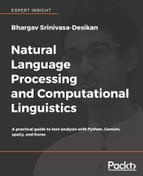
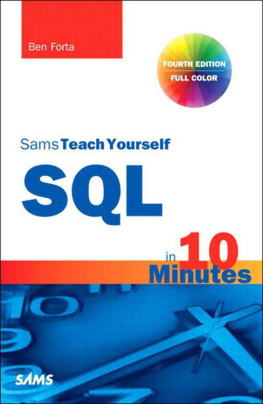
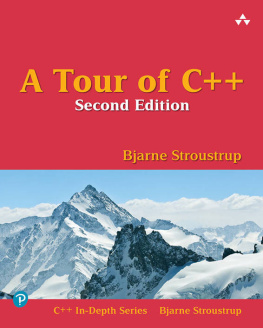
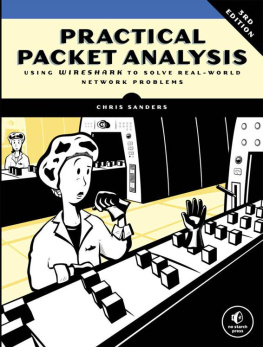
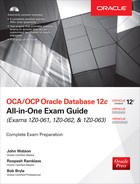
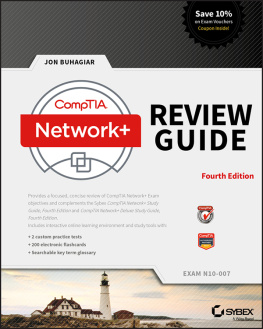
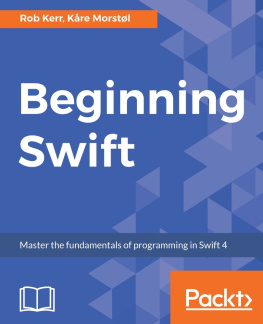

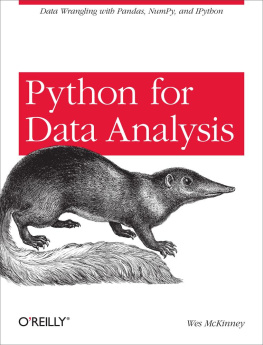
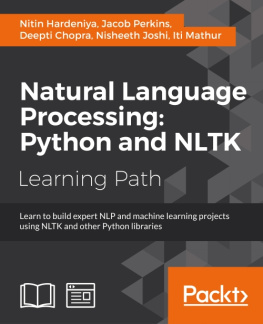
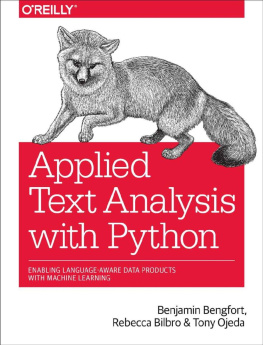
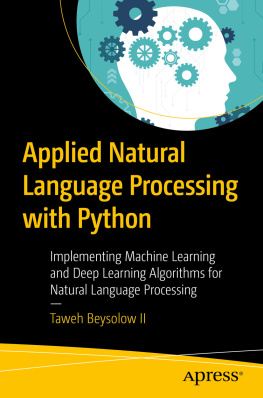
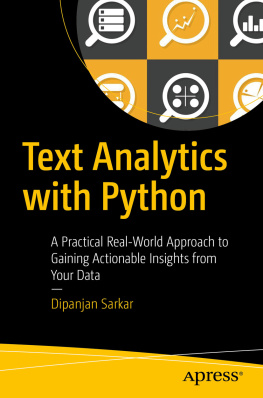
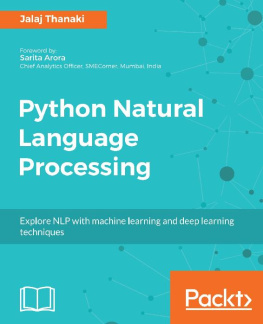
![Bhargav Srinivasa-Desikan [Bhargav Srinivasa-Desikan] - Natural Language Processing and Computational Linguistics: A Practical Guide to Text Analysis With Python, Gensim, spaCy, and Keras](/uploads/posts/book/119021/thumbs/bhargav-srinivasa-desikan-bhargav.jpg)
